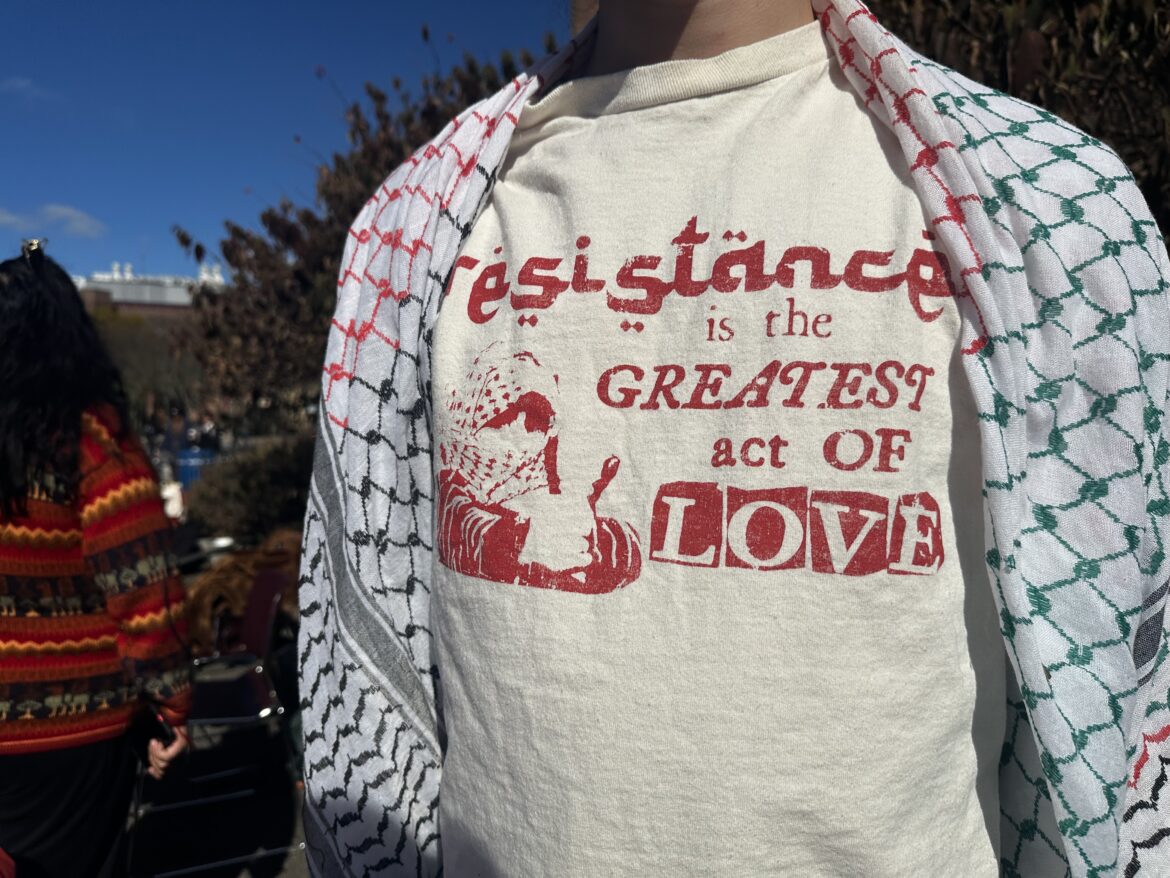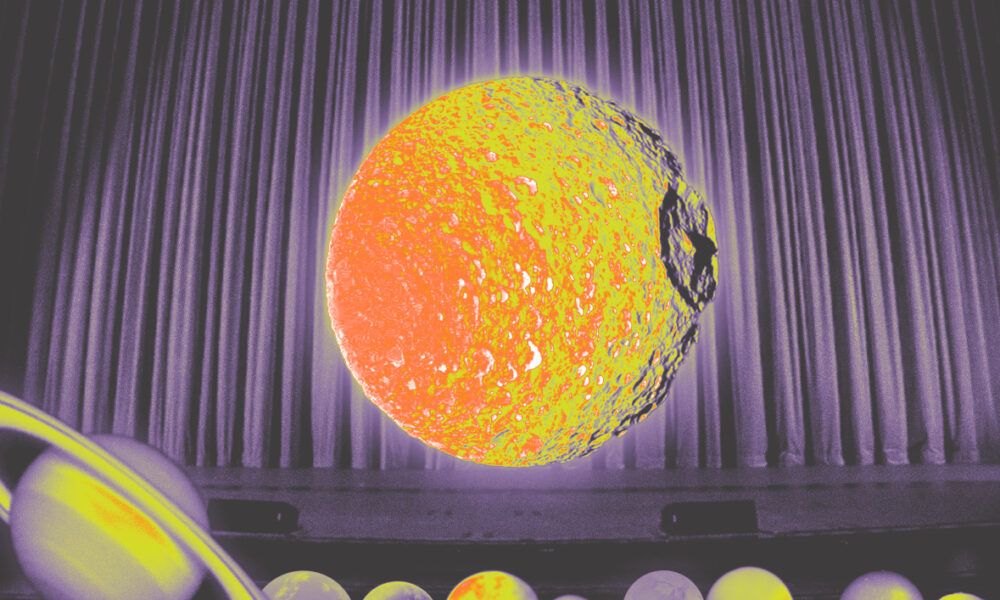Namal, then a student at Stony Brook University (SBU), had nothing to do for a while. She had just been suspended from the university and barred from campus because of her involvement in the May 2024 Gaza solidarity encampments on the Staller Steps. While at Stony Brook, she stayed busy: Namal was the president and co-founder of Stony Brook’s Students for Justice in Palestine chapter (SJP), which has repeatedly been in trouble with the university administration.
But now it was summer, and she could be subject to arrest if she stepped foot on campus. She thought back to the encampments, sometimes fondly. Before the police and state troopers flooded in, before Vice President of Student Affairs Rick Gatteau issued the first suspension (to the SJP chapter’s designated mediator), before students and professors were carted off to holding centers in SBU busses — there were moments of peace, and a sense of community. Namal gave out hand warmers when everyone slept on the grass, muddied in the cold rain. She argued with university officials when they said that protesters weren’t allowed to have blankets, until they caved. She passed out halal chicken and rice platters from a local restaurant to fellow protesters.
When graduate instructor Callen Zimmerman brought their screen printing class to the encampment, Namal learned how to apply the technique on T-shirts. She and Zimmerman’s students sat in a circle on the grass, lush in the warmth of late spring. Together they designed graphics and slathered white T-shirts in red, black and green ink, leaving them to dry in the sun. One protester would later go for a run and return with Aquaphor to help another who fell asleep and woke up sunburnt.
“As a relatively simple art form, it’s a communal activity and a great way to get messaging out through both aesthetics and words,” Zimmerman said. “My intention with bringing screen printing to the encampment was to share with this group of brilliant, committed and caring young people and other members of the Stony Brook community, a skill that I have often turned to in political organizing when things feel desolate and hopeless, as art is a means of expression and connection, especially to our shared humanity.”
That moment was the “major spark” for Inteefada Shirts, Namal said.
Inteefada Shirts, a clothing brand that sells T-shirts and sweaters with pro-Palestine designs by Namal herself (barring one collection), has raised over $20,000 in aid for Gaza relief. Some of the money has gone to a Gazan teenager, Ibraheem, whom Namal met on social media. They bonded over art, and he’s gone on to create some of his own designs for Inteefada Shirts.

A design by Ibraheem from Gaza, from the Inteefada Shirts website. The design has been printed on a collection of shirts.
“Right now, the food prices in Gaza and Palestine overall are just astronomical. I remember him telling us that a kilogram of sugar goes for, like, $70 in USD, and so a lot of the money is being spent on food for him and his families, as well as neighboring families,” Namal said. “He also teaches the children… If you go to his page, you’ll see he’s always doing videos with the school kids. They’re doing art projects and things like that.”
Some of the money also goes to HEAL Palestine, a non-profit organization dedicated to providing Palestinian refugees with relief. They’ve helped evacuate people from Gaza and rebuild their lives in New York. In one case, HEAL Palestine evacuated a teenage girl, Sara Bseiso, from Gaza to New York to save her life. She was suffering from life-threatening burns after surviving an Israeli airstrike on her home which killed several of her family members.
“We arranged a medical evacuation flight for $180,000. We brought her, and she spent three months in an intensive care unit, and we saved her life with thanks to the doctors in the hospital,” Steve Sosobee, co-founder of HEAL Palestine said.
Whether to Ibraheem or HEAL Palestine, 100% of the brand’s proceeds are dedicated to Gaza relief no matter what, and Namal doesn’t give herself a wage for her work.
The brand has gained traction on Instagram, where they posted photos of their clothing and flyers for pop-up sales events on college campuses throughout New York. A Stony Brook professor in the Department of Anesthesiology who was arrested at the May encampments, Josh Dubnau, is pictured on the brand’s Instagram wearing a shirt that says “Free Palestine.”
SBU professor Josh Dubnau is pictured on slide five, left, wearing Inteefada Shirts merchandise.
“Inteefada is a clever brand name. It merges the Arabic word for ‘struggle’ with the T-shirts they sell,” Dubnau said. “The T-shirt that I bought from Inteefada Shirts has a beautiful drawing of a peace dove with a Palestinian keffiyeh motif and the words ‘Free Palestine.’ So my Inteefada shirt shows a struggle for peace with justice.”
Other members of SBU’s SJP chapter are pictured on Instagram toting merchandise as well. Adam, who attended a pop-up sales event at SBU on Oct. 16, wore a shirt that read, “Resistance is the greatest act of love.” He was also arrested at the May encampment, and was selling shirts at the event. Adam said Namal asked him to get involved with the brand after they were arrested together, and he joined without hesitation.

A collection of Inteefada Shirts merchandise for sale at an event at SBU on Oct. 16, 2024. by Kaitlyn Schwanemann
Namal plans on transferring to another college or university. She doesn’t know where yet, but she’s incidentally toured campuses across New York while selling Inteefada Shirts merchandise. She quipped that while she wasn’t allowed on SBU grounds, she was selling shirts on “every other” college campus.
She screen prints the shirts at home; her family’s living room is draped with red and green T-shirts and sweaters left out to dry. Her parents don’t ask questions, she said — they just shrug and sit elsewhere.
“You have to burn the image that you want onto a silk screen frame that you prepared. You have to know how to work with the chemicals you’re given, and you just burn the image on there with sunlight — UV rays. Once that image is on the screen, you just pass the ink through it with the squeegee onto whatever fabric,” Namal said.
It’s a tedious and time-consuming process, she added, which is why she’s asked friends like Adam and other SBU-SJP members for help.
They’ve sold shirts at Columbia University, New York University, Cooper Union, Fashion Institute of Technology and throughout New York City. A collaboration with Stanford University’s SJP chapter is in the works, and they’re in the process of organizing international shipping (especially after a prospective customer from Kashmir reached out). National SJP reached out, asking Inteefada Shirts to present at their annual convention.
“We really wanted to highlight the importance of resistance. This brand was born out of just pure love for Palestinian resistance and liberation,” Namal said.
Editor’s Note: All SBU students quoted requested that only their first names be used in this story, as pro-Palestine protesting and activism has been penalized by some institutions. Some who’ve been vocal about their support for Palestine have been accused of antisemitism, others have lost opportunities.




Comments are closed.